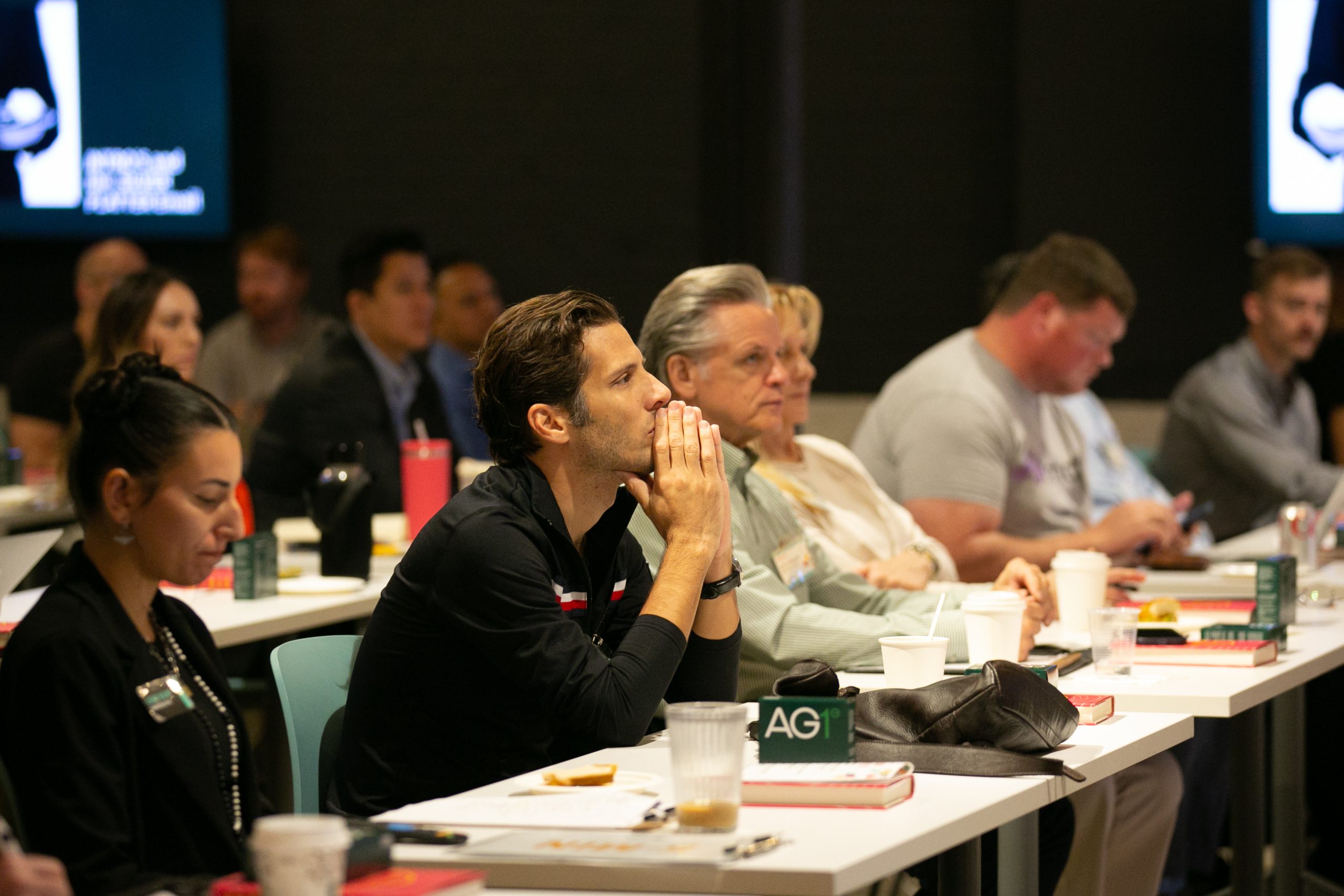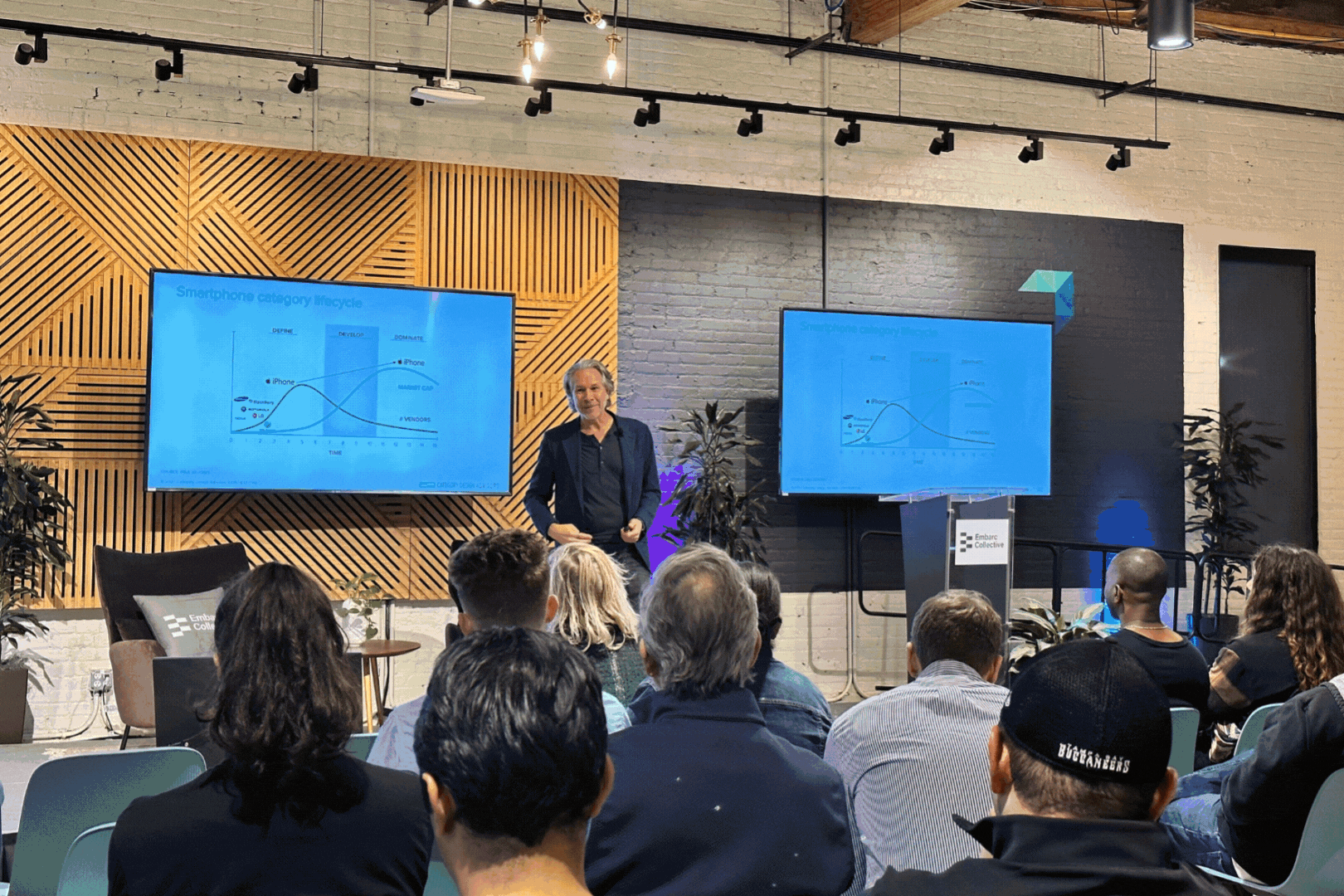Get the Weekly Collective
Learn about upcoming events and the latest startup news—delivered to your inbox weekly.
About The Author
Lakshmi Shenoy
Once again, Embarc Collective had the opportunity to partner with the Ryan Nece Foundation, a youth leadership program, on a workshop with high school leaders about technology startups.
With guidance from members of the Embarc Collective community, these students learned about what it’s like to work in a technology startup in Tampa Bay. At Embarc Collective, we create opportunities to attract, retain, and develop startup talent in Tampa Bay. Ensuring that high school students like those affiliated with the Ryan Nece Foundation are excited about the opportunities they can build or join in Tampa Bay is core to our mission.
The insights during the panel came from three startup team members relatively early in their careers and are already making a tremendous impact on their teams:
- Charlie Bissell, Web Developer at Chattr
- Emily Cartafalsa, Product Owner at SiteZeus
- Dillon Culp, Fullstack Developer at Grifin
If you weren’t in the Zoom Room, here are the key takeaways from the conversation:
- The path to a startup is not standard. Each panelist took a different route to get to their current startup role.
- After community college, Charlie joined St. Pete-based Suncoast Developers Guild to train as a web developer where he learned the basics of web development, including HTML, CSS, and JavaScript. At Suncoast Developer Guild, he not only learned the foundations of coding but also developed connections with local businesses, which ultimately led to his introduction to Chattr. In the interview process, he learned that when he was authentically himself, he had the most success.
- At the University of Florida, Dillon got involved with teaching web development as a student and joined a development shop in Gainesville, which gave him exposure to several local early-stage startups – including his current startup, Grifin.
- Emily moved to Florida from Philadelphia to attend the University of Tampa. She found out about SiteZeus at a UT Intern Fair and started as an intern before earning a full-time offer. She leveraged the support of her career office to prepare for interviews and be job-ready.
- Dillon recommended taking advantage of whatever opportunities come your way and suggested identifying a set of mentors can help you find opportunities that you wouldn’t have access to otherwise. And when you learn about opportunities, make sure you’re excited about both the product and the founding team; the team matters a lot when you’re in a startup.
- There is a lot of learning on the job, prioritizing, and doing more than your job title dictates when you join a startup.
- In a startup, there is not a lot of hand-holding and formal training because a team needs to move quickly. That means that members of a startup team have to be quick studies when learning from senior employees and be self-directed to learn new skills on the fly. Dillon mentioned specific skills like development workflows, including Agile and Scrum, and understanding how to collaborate with other developers without stepping on toes.
- As Product Owner at SiteZeus, Emily gets to decide what feature to build next on the platform. This requires a deep understanding of the pain points and needs of customers. Each day, she works closely with the sales team and the development team to prioritize that list of product enhancements. While she doesn’t code, Emily has to be able to write the product requirements for the developers. As developers, Dillon and Charlie are acutely aware of the need to prioritize.
- The roles in a startup often creep beyond the title. As part of a smaller team, Dillon also has to make sure his work is well documented and keep tabs on what competitors are up to.
- Sometimes the most rewarding parts of working in the startups are the most challenging as well.
- Charlie talked about how coding, in particular, is both rewarding and challenging because you’re learning and building new things each day.
- Dillon noted that it’s fun to see what you’re building be implemented right away (developers in larger organizations may see this payoff but more slowly). But there are consequences to that speed—technical debt. Sometimes you build so quickly that you have to refine your current version a few months down the line.
- Emily needs to communicate with a variety of stakeholders each day and has to be able to “speak code” while not being a developer.
- Startup life is not 9-5, but the panelists shared their tips for managing intense days.
- Time Blocking
- Taking Breaks
- Making Time for Fitness
- And Standing Desks (each office at Embarc Collective is equipped with this!)
Interested in startup life? Bookmark TampaBayStartupJobs.com to keep track of new opportunities – the site is updated daily.
Related Articles

The Mind of a Builder: Ryan Serhant at Embarc Collective
Embarc Collective kicked off the week with a dynamic discussion, bringing together Florida entrepren...

Supercharge Your Leadership: Lessons From Six Leaders Who Transformed Their Startups Into Global Success Stories
Advancing one’s leadership style has been top of mind for the entrepreneurs a part of our communit...

Category Design with Kevin Maney
This week, Kevin Maney, Founding Partner at Category Design Advisors and co-author of Play Bigger, v...
Meet Our Members
Meet the Embarc Collective member community of driven entrepreneurs who are building bold, scalable, thriving companies in Florida.
